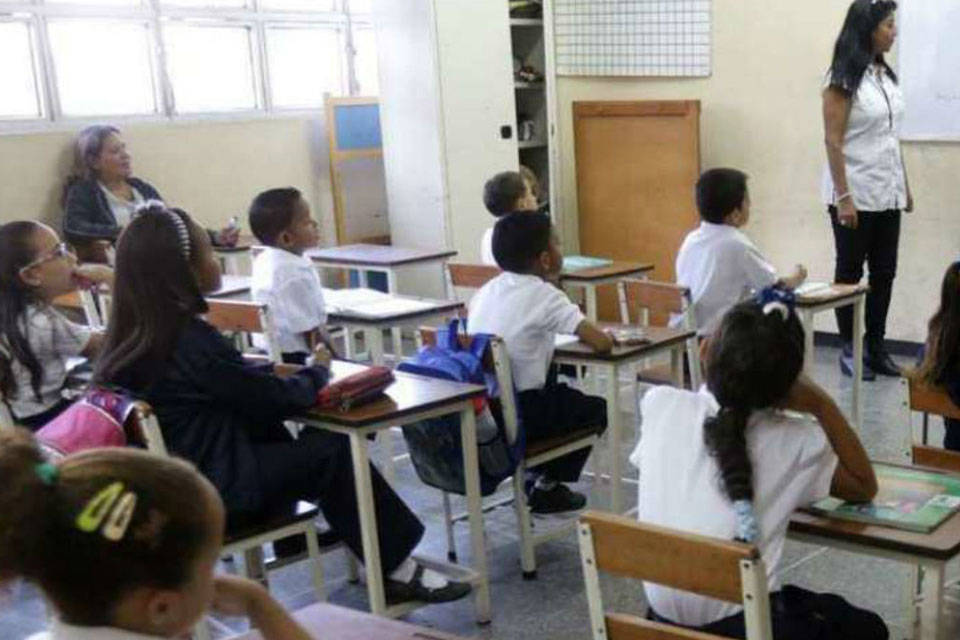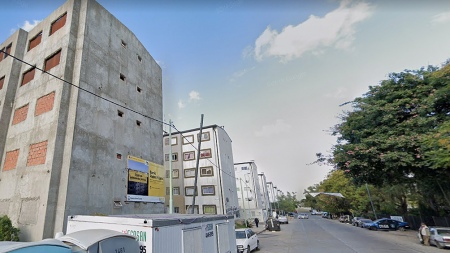Experts assure that the educational system is not ready for double shifts and reduction in class hours, since they consider that the educational establishments have other problems to solve before
Regarding the modification made in the official Gazette 42,505 published on November 15, the National Alliance All for Education insists that the education system is not suitable for the double shift.
Nancy Hernández de Martín, member of the National Federation of Societies of Parents and Representatives (Fenasopadres) explains that said mandatory compliance gazette has some factors that must be taken into account: the first of these is that the schools are finishing the first period, which is why it considers it “difficult” for them to be executed immediately.
He affirms that there was a lot of ignorance and pressure on the part of the ministry on the schools, “but they forgot that to apply any change of schedule or study plan they must have a previous planning ”.
*Read also: Ministry of Education modifies class schedules and opens the return of the double shift
He points out that these plans are more complex than they seem and that points such as the year, the grade and even the campus must be evaluated because the operation of each one is different.
In his opinion, The creation of the second shift threatens the full shift, effectively affecting the class schedule, but also the fulfillment of the learning objectives that should be given during the school day.
“The aspiration is all day classes, so that our boys obtain curricular complements. That they can spend more hours learning and less leisure time because society and the State have not been able to give vulnerable populations occupations for their free time, be it with culture, entertainment or research, ”she says.
He considers it a “euphemism” to say that free time will be linked to tasks of solidarity with his community. “For me, that is putting a label on what will be unused and uncreative time in the school space, because the communities are more focused on surviving than on civic education for our boys,” he asserts.
The expert highlights that One of the most worrying points is the disappearance of the School Feeding Programs (PAE), which since 2018 has had a pronounced decline. That is why he insists that only some “privileged” schools will receive mid-morning and afternoon snacks, but with low protein levels and high caloric indexes. “In other words, they will be malnourished and that will affect their learning abilities,” says Martínez, who also believes that others will not even have snacks because the national budget has stopped understanding this point, which is the motivation of many parents who see this as a way to feed their children.
Regarding the reduction of the double batch blocks such as those of 90 minutes, he expresses that the reduction is 10 minutes for a shift of five academic hours. “Before there were seven and that threatens the fulfillment of curricular objectives and the same learning capacity,” he emphasizes.
Regarding the implementation of the double shift, he points out that this implies having buildings suitable for that. “Many of our schools are designed for a single shift. By modifying that without planning, you reduce the possibilities of the population that is being served, so enrollment must be opened to receive a population that will start late, ”he says.
In this sense, Hernández believes that another option would be to wait until the following year for the school to adapt and look for solutions, without ruling out that the ministry should provide teachers for the evening hours in each of the areas that education includes.
“In practice you are not going to respond to the needs of 100%, but it is going to lead to a decrease in what is already being attended to. In addition, it is impossible to open registration in the second period ”, he affirms.
It states that said incoming population must be evaluated and then be assigned to the corresponding level.
campuses without conditions
According to the Venezuelan Federation of Teachers More than 80% of the official schools do not have the adequate infrastructure to receive a large capacity of studentseither because there are leaks, there are no laboratories, computers, water in the bathrooms or desks.
Regarding this, Hernández believes that this should have been evaluated and resolved before issuing a gazette that he calls irresponsible and unrealistic.
Hernández sees as a conflict the State’s intention to make private schools give up their facilities in the afternoon, if they do not want to apply the regulations, since private schools would have to consult parents and representatives, given that they are These are the ones who pay for the maintenance of the schools.
“We know that there are schools that provide their activities for specific things in the afternoon, but that is very different from an educational shift,” he says.
For his part, Luisa Pernaletean educator and member of the Fe y Alegría Training and Research Center, believes that no resolution that alters the course of the school year can be called good, even more so when she describes how difficult it was to start the school year due to the lack of teachers. “It was very difficult to balance schedules. This seems untimely to me.”
He assures that this decision is due to the need to attend to the entire school-age population, but he believes that putting schools to work is a complex situation.
In addition, he adds that the resolution is very confusing and difficult to understand, which is why he promotes different interpretations. “Although I am not a lawyer, the rules and laws must be written in such a way that everyone understands the same thing,” he insists.
He also considers that there are schools that already have their morning and afternoon shifts active. “We cannot put more people in it. At least in the case of Fe y Alegría”, he says.
With regard to poor infrastructure, like Hernández, he doubts that the ministry’s objective can be met.
Pernalete says that the ideal would be to carry out a mapping and find out why more schools have not been built, why there are schools closed, why there are schools with poor infrastructure, because “they don’t seem to be clear about what the problem is.”
The All National Alliance for Education says that, although the National Survey of Living Conditions (Encovi 2022) showed that more than a million young people and school-age children are not in the classroom, these figures are an approximation, since 2016 the Ministry of Education has kept the figures completely hermetic, which makes it impossible to even know how many public schools there are in the country.
That is why michael baronenational coordinator of Let’s shout with Brío and promoter of the Todos por la Educación alliance considers that there is an insistence on the part of civil society for the State to be transparent regarding the educational system. “We must insist on the existence and strengthening of access to information. That is, there is a lack of answers and meanings of these changes”.
Barone stresses that the absence of explanations is worrisome, not only for the measure implemented, but also for how this will affect the quality of education, noting that the humanitarian emergency has a direct impact on the current educational landscape, emphasizing that in the public sector this reality is more evident.
Today there is no explanation of how this is going to change the quality of education in the complex environment that exists within schools, especially those belonging to the public system.
In Barone’s analysis, the precariousness of the educational system is not a sudden cause, but rather the product of several years of complete indolence towards what happens in Venezuelan classrooms, with special emphasis on initial, basic, and secondary education, so so much insists that making changes to the schedule in the middle of the school year without answering questions about the state of the schools, the salary of the teachers and the possibility of access for these students to the PAE, calls into question that the measure has received all the attention when planning.
He acknowledges that any change that affects the educational system always draws attention due to the history of control and the way in which it has been divided into parties, for which he believes that it would not be surprising if it were a play, which will deepen the damage to the education and those directly affected by children and adolescents, youth and teachers. national alliance all
Post Views: 462








